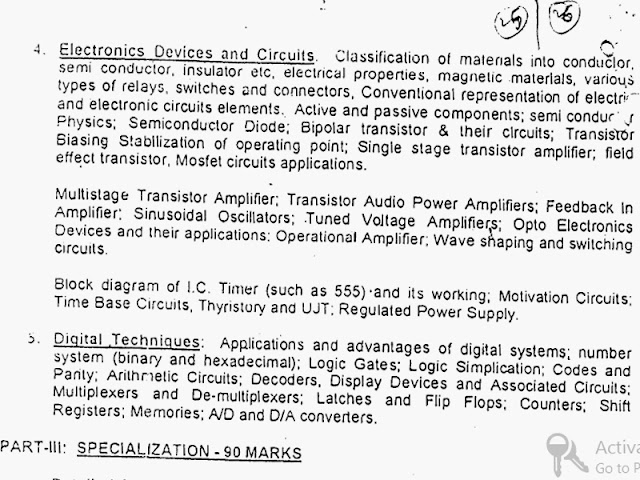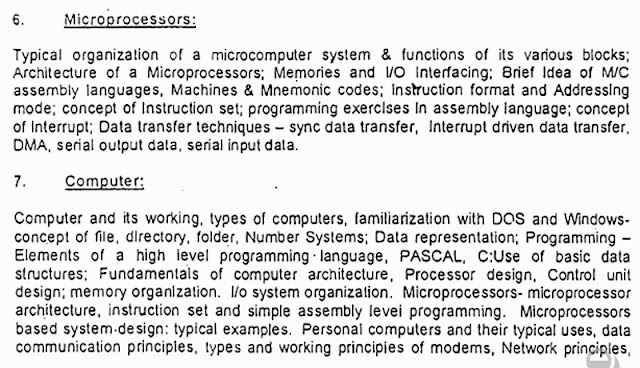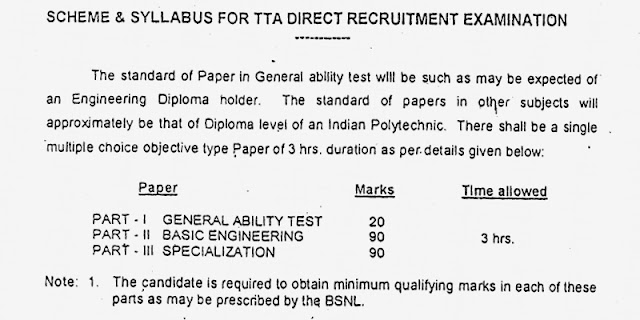BSNL JTO Syllabus 2024 PDF, Check JE, TTA Exam Paper Pattern
BSNL JTO Syllabus
Bharat Sanchar Nigam Limited (BSNL) is going to conducts Junior Telecom Officer (JTO) written exam for eligible candidate appointments. Here on this page we are going to aware you about BSNL JTO syllabus as well as exam paper pattern and structure.BSNL is a national organization which works to communicate the one people to another people. Every year BSNL is recruit candidates on junior telecom officer post on large scale. From India different-different places peoples are participates in JTO written test. Candidates who want to get good marks in JTO written exam they must need good syllabus.
Syllabus of JTO is helps you very much when
you start to write in Exam. Syllabus of any exam is also tells you, how will be
you exam paper pattern. This syllabus
of BSNL JTO exam will help you very much in your exam preparation.
As per the knowledge of experts, exam of BSNL JTO will not be very hard. This exam is going to held very soon in upcoming days. Before exam if candidates have good knowledge of syllabus then they can crack exam very easily. Candidates who will be weak in study they can’t crack the BSNL JTO exam.
Here ewebalert team are providing you complete details of BSNL JTO exam syllabus. BSNL JTO exam syllabus will be as follows -
BSNL JTO Syllabus for Section I:
Materials and Components:
- Electronic Engineering materials
- Capacitors
- Ceramic materials
- Ceramic resonators
- Conductors
- Electromechanical components
- Ferroelectric material
- Inductors
- Insulators
- Magnetic material
- Optical materials
- Passive components
- Piezoelectric materials
- Resistors
- Semiconductors
- Superconducting materials
Physical Electronics, Electron Devices and Integrated Circuits:
- Bipolar Junction Transistor
- Carrier Statistics
- Electrons and Holes concept
- Hall Effect
- Junction theory
- Power switching devices
- Semiconductors
- Types of diodes
- Types of IC’s like bipolar, MOS and CMOS
Electromagnetic Theory
- Basics of antenna theory
- Transmission lines
- Waveguides and resonators
Electronic Measurements and Instrumentation:
- Electronic measurements of non-electrical quantities
- Electronic measuring instruments
- Error analysis
- Measurement standards
- Measurements of basic electrical quantities
- Transducers
- Working principles of measuring instruments
Network Theory:
- Elements of network synthesis
- Network analysis techniques
- Network theorem
- Transient and steady state sinusoidal response
- Transmission criteria
Power Electronics:
- AC regulators
- AC to DC convertors
- Inverters
- Power Semiconductor devices
- Pulse width modulation
- Single-phase and 3-phase Invertors
- Sinusoidal modulation
- Switched capacitor networks
- Transistor
Syllabus for Section II:
Digital Electronic Circuits:
- Boolean algebra
- Boolean functions
- Combinational logic circuits
- De-multiplexer
- Digital Comparator
- Flip-flops
- Full adder
- Half adder
- IC logic families
- IC Logic gates
- Karnaugh Map
- Multiplexer
- Semiconductor memories
- Transistor
- Types of counters and registers
- Waveform generators
Analog Electronic Circuits:
- Feedback amplifiers
- Frequency response
- Operational Amplifier
- Oscillators
- Power amplifiers
- Pulse shaping circuits
- Rectifiers
- Small Signal analysis
- Transistor biasing
- Tuned amplifiers
Control Systems:
- Compensators
- Design of Control Systems
- Frequency response analysis
- Gain and phase margins
- Industrial controllers
- Root locus techniques
- Transient and steady state response
Communication Systems:
- Frequency division multiplexing
- Optical Communication
- Propagation of signals
- Quantization & Coding
- Sampling
- Data reconstruction
- Satellite communication
- Time division Multiplexing
Microwave Engineering:
- Microwave antennas
- Microwave Communication
- Microwave generation and amplifiers
- Microwave Measurements
- Microwave Propagation
- Microwave Tubes
- Solid state devices
- Waveguides
Computer Engineering:
- Control unit design
- Data representation
- Computer architecture processor design
- Data structures
- I/O System Organization
- Memory organization
- Number Systems
- Personal computers
- Programming
Microprocessors:
- Applications of Microprocessors in Telecommunications
- Assembly language programming
- Instruction set
- Interfacing for memory and I/O
- Microprocessor architecture
Syllabus for Section III:
- English Language
- Current affairs
- Current events and developments in Telecommunication Sector
Selection Criteria:
Selection criteria will be based on written exam and interview exam obtained marks performance.
All candidates can check JE & TTA Exam Pattern & Syllabus through given below images -
Selection criteria will be based on written exam and interview exam obtained marks performance.
BSNL Junior Engineer (JE) & TTA Exam Syllabus:
Aspirants who have any doubt about BSNL JTO & other exam syllabus then they can also see syllabus from BSNL official website which
is - www.bsnl.co.in











 left 5px no-repeat)
sir i have completed my graduation from electrical engineering.i want to fill bsnl form.
ReplyDeletebut sir i have question, part 3 spelization is compulsary for all the students or we have to choose subjects...
Do we need to select a single subject in specialization or how many....? For ece folks
ReplyDeleteplz mail the solved ouestion papers of bsnl je exam atleastof 5years
ReplyDelete